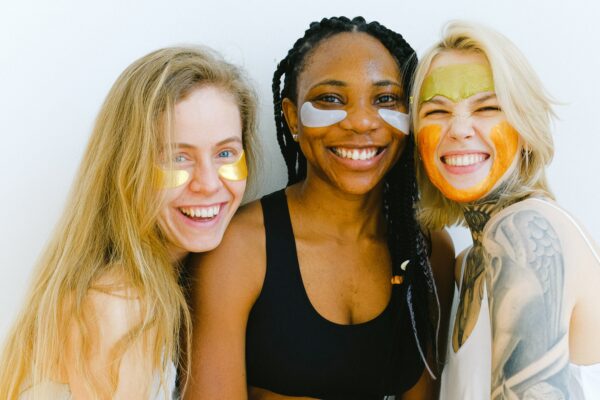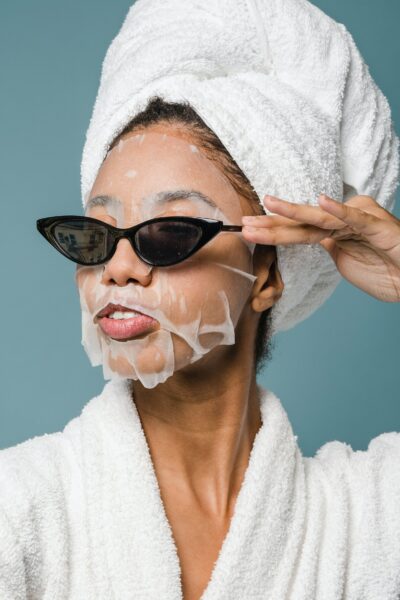The wellness myth in the age of social media

What exactly is wellness? The Cambridge Dictionary defines it as “the state of being healthy, especially when it is something that you actively try to achieve.” It’s become the buzzword of online content creators over the past five years.
If you’ve used TikTok, you’ll likely have been inundated with quick fixes for every problem under the sun: ageing, bloating, fatigue, acne; weight gain. The problem is that it’s become obsessive. All too often, behind the guise of ‘wellness’ lurks disordered eating, anti-ageing propaganda, and body dysmorphia. It tends to be about restriction rather than enjoyment – surely wellness shouldn’t be a form of self-punishment?
Undoubtedly, the content is not all sinister, but a lot of it is aimed specifically at young women. The promotion of good health and the nourishment of your mind and body should be a positive action. Instead of being swept up in the various commodities and cures touted over the internet, perhaps we can avoid the darker side of social media and move towards a more holistic vision of wellness through moderation.

Wellness, at its roots, as the pursuit of health is something to strive for – the emphasis upon simple physical practices as a way of looking after yourself makes sense. With the UK in the midst of an obesity epidemic, healthy eating may never have been so important for the country. Balanced and nutritious diets, daily exercise, and making mental well-being a priority all find a platform online.
Through my use of social media, I’ve been positively influenced, from finding ways of experimenting with exciting foods and meal ideas or trying new forms of physical activity like yoga. This can be fun and promote a healthy mindset in terms of taking care of yourself.
With wellness becoming more fashionable, there are many positive movements that have become increasingly talked about. For example, the concept of mindfulness has risen in popularity in recent years. It’s proved itself to be more than a fad, finding a justified place in many people’s daily routines and is encouraged by health experts including the NHS and mental health charity Mind.
Indeed, the conscious practice of being present in your body and surroundings is proven to support a healthy mind, impacting the regions of your brain associated with creativity, anxiety, and memory. There are many ways in which the world of wellness facilitates necessary discussions about our mental and physical state, encouraging attention to ourselves in a busy world where our well-being can become secondary.
So, when does it become too much? Just look at the recent and continuing controversy surrounding Hollywood royalty and self-appointed wellness queen Gwyneth Paltrow. She’s long been the purveyor of various pseudoscientific goods through her company Goop, and even acquired a Netflix show to discuss the secrets to good health. In a viral interview on The Art of Being Well podcast, she sits with a cannula in her wrist, and admits “I love an IV!” The Hollywood actress goes on to discuss her daily meals of “bone broth,” her subsequent “intermittent fast”, and “infrared sauna,” as well as paleo dinners to “support [her] detox.”
For the average listener this likely sounds pretty strange and disconnected, from the personal sauna to the heavily restricted diet. Whilst there is a gulf between the lifestyles of A-List celebrities and the majority, those who take on the roles of wellness gurus (with often little qualification to do so) play a role in shaping the lifestyle trends which appear all over the internet. Paltrow may only intend to promote an active approach to well-being, but her inflexible self-regulation is unlikely to be the answer for most people.

Some influencers can be seen to capitalise upon the insecurities of their audience, sometimes even creating anxieties about issues we didn’t know we had. Bodily appearance seems to be at the forefront of wellness trends, and one of the most frequent money-makers seems to be the advertising of weight-loss remedies. Laxative and appetite-suppressant teas have been promoted incessantly for the last decade by all kinds of high-profile figures including the Kardashians. As with many other products, the health implications of these slimming teas have been frequently debated, but their use is still widespread.
Moreover, there is a lack of acknowledgement of the genetic, money, or cosmetic modifications that feed into the ‘perfect’ bodies we see online. The ‘What I eat in a day videos’ which circulate around social media are frequently lacking in sufficient calories and are wholly unsustainable. It seems counter-intuitive, but it is often the cult of wellness which feeds unhealthy lifestyles, acting as an extension of toxic diet culture. Evidently, obsessive policing of minor weight fluctuation is not the road to a good relationship with the body.
You may have seen the hashtag ‘clean girl’, a trend based around rigid eating, exercise, and general lifestyle practices which has been viewed 3.1 billion times. You’ll be bombarded by images of virtually identical people sporting gym wear, holding green juices, and applying expensive skincare. Whilst the trend can’t be demonised in the way it promotes being active and taking care of yourself, many of the videos do focus on the use of a wealth of products to achieve this flawless skin, makeup, and hair.
The expense of keeping up with these micro-trends is high and often encourages the overconsumption of unnecessary items – wellness packages sold for high prices but containing cheap goods create unnecessary waste and seem unlikely to have a long-lasting impact on well-being. The temporary boost of buying an ineffectual ‘cure’ might make us feel better in the moment, but it doesn’t tackle the root of wellness issues.
Wellness shouldn’t be something only accessible to the rich and famous. Undeniably, there are problems rooted in our systems which wealthier people may be able to bypass – long waits to access healthcare, mental health provisions, or even just higher-quality food. These issues present real barriers, reflecting the social and economic state of our country, and it’s these fundamental needs which should be our focus.

In the rabbit hole of social media, it’s easy to lose sight of what’s real and what’s not. We need to remind ourselves that the vision of wellness that we see online is often unrealistic, encouraging the comparison of our bodies and minds to those who likely have their own problems beneath the surface.
Our obsession with wellness is understandable. The notion of bettering yourself is appealing, but it can drift into something more extreme. It seems better to keep life simple, maintaining a lifestyle that fulfils your needs and doesn’t break the bank in the chase for some unattainable image of perfection that’s circulating online.
Simply put, simplicity seems to be the best way forward – we can’t let the search for wellness overtake our enjoyment of daily life and we must learn to take the advice of certain influencers with a pinch of salt.
If you’re looking for a way to unwind from a long day, exam stress or dissertation deadlines, click here to see what we recommend at The Mancunion.







